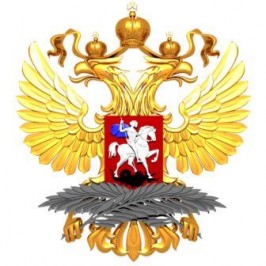On February 28, a vote was taken in the UN Security Council, during which Russia and China vetoed a draft resolution on imposing sanctions against Syria under Chapter VII of the UN Charter, introduced by the UK, France, and the United States. Bolivia voted against the resolution, with Egypt, Kazakhstan and Ethiopia abstaining.
The point of departure for the French-British draft were the third and fourth reports by the OPCW-UN Joint Investigative Mechanism in Syria (JIM), which assumed that the blame for three chlorine attacks against peaceful civilians in 2014−2015 lay with the armed forces of the Syrian Arab Republic, with ISIS responsible for one mustard gas attack.
The reasons behind the doubts shared by Russia and other countries regarding the JIM experts’ conclusions are well known. From the point of view of law enforcement practice, these documents contain no reliable facts that would warrant any accusations not only against Damascus but also against ISIS. Moreover, toxic chemicals are widely used in Syria by Jabhat al-Nusra and by numerous groups of the Syrian armed opposition, including for provocative purposes, to discredit that country’s armed forces and leaders.
That the terrorist organisations in Syria and Iraq possess chemical weapons has not been a revelation for anyone for quite a while. For example, representatives of the US-led anti-ISIS coalition regularly report about the destruction of the militants’ chemical laboratories in Iraq. In December 2016, Damascus handed to the OPCW experts samples and other material evidence taken by the Russian military in Aleppo Province following a terrorist attack using a regular chemical warfare agent, mustard gas, which occurred there on September 16, 2016. In January, our Italian partners helped to deliver the samples to the OPCW Headquarters in The Hague, where they are being analysed.
We have no doubt that a number of Western countries see JIM activities as aimed at finding a way to put the blame for using chemical weapons on Bashar Assad’s Government and thus pave the way for regime change in Damascus. Some of our colleagues in the Five said so openly in New York a year ago. Nevertheless, Russia consented to extend the JIM mandate for another year in the belief that the use of chemical weapons in that troubled region was an extremely dangerous trend that threatened to expand beyond the Middle East. We proceed from the assumption that JIM will base its work on the principle of impartiality and draw solely on established facts rather than assumptions, conjectures and fakes openly fabricated by the Syrian opposition not without outside help.
We hope that the Joint Investigative Mechanism, as implied by Security Council Resolution 2319 (2016) on extending the JIM mandate, will spread its activities to the states neighbouring on Syria and simultaneously serve as a genuine counterterrorism tool. Much is yet to be sorted out, including by letting Damascus, in keeping with its commitments under Article VII of the Chemical Weapons Convention, to follow to its logical end a comprehensive national investigation into facts listed in the JIM reports.
On November 11, 2016, a number of states members of the Chemical Weapons Convention managed to push through the OPCW Executive Council an anti-Syrian decision on sanctions, using a vote rather than reaching a consensus, as is usually the case at the OPCW. On January 12, 2017, Washington introduced new unilateral sanctions against Damascus. But it seems this was not sufficient. An attempt was made to “implant” these sanctions in a draft resolution of the UN Security Council. For the Russian Federation, like for other states that have an objective view of the situation involving the use of chemical weapons in Syria and Iraq, the very concept of the document submitted by the Western “troika” of permanent members of the UN Security Council was totally unacceptable. The draft resolution was flawed and imbalanced. The sanction list of Syrian individuals and legal entities was not backed by facts from the JIM reports and was absolutely arbitrary.
There is no doubt that these initiatives presented to the UN Security Council and the OPCW can have a highly negative impact on the prospects for a political settlement in Syria, given that the relevant talks were restarted in Geneva on February 23. The efforts to establish an intra-Syrian dialogue, which saw a promising start in Astana, are being jeopardised as well.
Russia put forward all these arguments during the past several months, when consultations were held on the draft resolution. Nevertheless, the Western “troika” – consciously and clearly with a provocative aim – engineered a split in the Security Council by planting the draft, although they knew in advance that it was unacceptable for Russia (and not only Russia) and would be vetoed. At the same time, the co-authors of this document made every effort to avoid a search for compromise solutions. In all evidence, their aim was to polarise approaches and aggravate the situation, rather than look for effective and generally acceptable solutions.
We are grateful to the member states of the UN Security Council, which, conscious of the irrelevance and ill timing of these actions and correctly assessing the acuteness of the terrorist threat emanating from that region, including the chemical component of terrorism, deemed it necessary to oppose or not to agree with this harmful initiative.
Fighting ISIS and other terrorist organisations in Syria should become imperative for everyone. Any unilateral or multilateral sanctions against Damascus will only weaken the international antiterrorist front.























